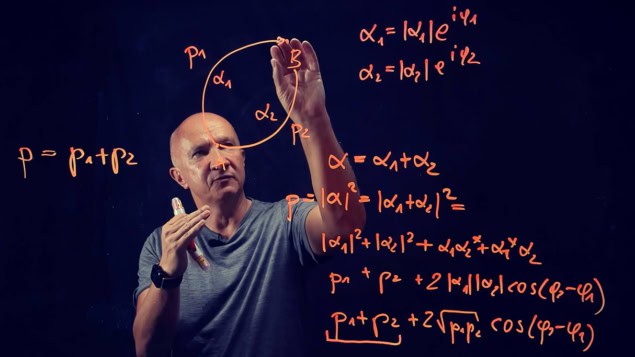Artur Ekert is a professor of quantum physics and cryptography at the University of Oxford, whose work on information processing in quantum mechanical systems has wide-ranging applications in cryptography and quantum computing. In 2024 he received the Royal Society’s Milner Award for outstanding achievement in computer science by a European researcher

What skills do you use every day in your job?
Apart from the usual set of mathematical skills ranging from probability theory and linear algebra to aspects of cryptography, the most valuable skill is the ability to think in a critical and dissecting way. Also, one mustn’t be afraid to go in different directions and connect dots. In my particular case, I was lucky enough that I knew the foundations of quantum physics and the problems that cryptographers were facing and I was able to connect the two. So I would say it’s important to have a good understanding of topics outside your narrow field of interest. Nature doesn’t know that we divided all phenomena into physics, chemistry and biology, but we still put ourselves in those silos and don’t communicate with each other.

What do you like best and least about your job?
Least is easy, all admin aspects of it. Best is meeting wonderful people. That means not only my senior colleagues – I was blessed with wonderful supervisors and mentors – but also the junior colleagues, students and postdocs that I work with. This job is a great excuse to meet interesting people.
What do you know today that you wish you’d known at the start of your career?
That it’s absolutely fine to follow your instincts and your interests without paying too much attention to practicalities. But of course that is a post-factum statement. Maybe you need to pay attention to certain practicalities to get to the comfortable position where you can make the statement I just expressed.



